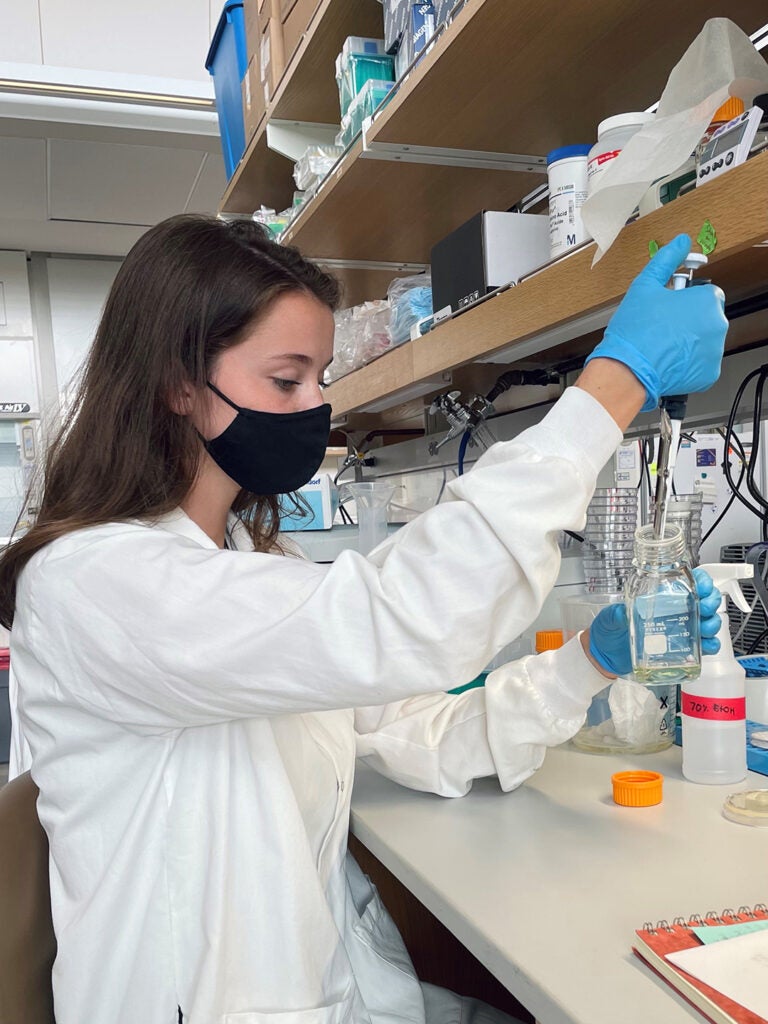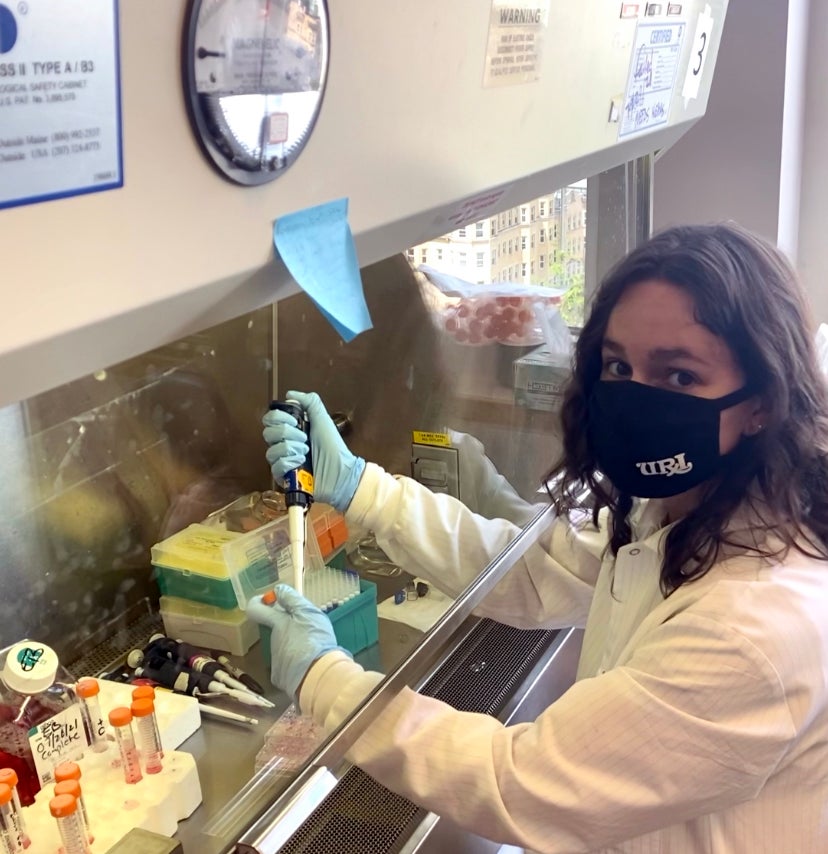KINGSTON, R.I. – August 2, 2021 – When University of Rhode Island rising senior Jewel Voyer was diagnosed with an autoimmune disease during her freshman year, she started reading scientific publications to learn more about it. The experience inspired her to major in biological sciences and molecular neuroscience, which led to an internship this summer at Harvard Medical School conducting laboratory studies on a possible method of treating cancer.
“It’s pretty rigorous and fast-paced research, and I really enjoy that,” said Voyer, a resident of West Hartford, Connecticut. “And I’ve learned a lot of new lab techniques that I could only learn at a lab associated with a med school.”
Voyer and URI classmate Elizabeth Billings from Hudson, Massachusetts, are getting their first laboratory experience outside URI this summer through a prestigious training program sponsored by the National Institutes of Health aimed at increasing the number of under-represented students earning doctorates in biomedical science. Called the MARC U*STAR program – Maximizing Access to Research Careers: Undergraduate Student Training in Academic Research – it places students in research laboratories for two years and offers them summer research internships at prestigious universities around the country.

Voyer’s research focuses on ferroptosis, a type of programmed cell death, and how it might be used to combat lymphoma cancers.
“Cancer is the over-replication of cells, and we’re trying to activate cell death of those cancers,” she said. “We want to kill those cells so they’re not creating more cancer.”
Living in Boston and spending every day in a Harvard lab is a big change from the research she conducted during the last year on COVID-19 vaccines with URI Assistant Professor Xinyuan Chen. She spends most days working with live human B cells and using CRISPR to knock out certain genes to study how that affects the cells.
Across the country, Billings is also learning new laboratory techniques and enjoying her time in a very different laboratory environment than she is used to. A cell and molecular biology major, she is studying the bacterium that causes cholera in a lab at the University of California at San Diego.
“Cholera produces a toxin that triggers cells to promote the transmission and colonization of the host. One pathway that’s been implicated in this process is called glycerol metabolism,” said Billings. “So I’m knocking out genes in that pathway and looking at how that might affect colonization of the host.”
What has she learned in the first two months of her internship?
“A lot,” she said. “At URI I did computational research, and here I’m doing wet lab research, so it’s a completely different experience for me. I came here without a lot of experience, but I learned all different techniques that are translatable to other fields, and I was able to apply my computational knowledge, which was really helpful.”
Her computational research experience came in working with URI Associate Professor Ying Zhang on studies of the metabolism of single-celled marine organisms called forams and how they survive in the harsh conditions on the sea floor.
Voyer and Billings agree that the MARC U*STAR program has provided a significant boost to their career prospects. They have already presented their URI research at academic conferences, participated in professional development programs, and enjoyed working with mentors. Their next step will be applying to graduate schools.
Voyer plans on entering an M.D.-Ph.D. program, an 8-year course of study that will result in obtaining a medical degree and a doctorate. “I’m really interested in infectious disease right now, but 8 years is a long time and maybe I’ll end up changing my mind,” she said. “I’m keeping my options open.”
Billings will enroll in a doctoral program to study microbiology with the goal of eventually conducting research in industry. “I’m enjoying pathogenic bacteriology now, but I’ve also liked doing environmental microbial studies,” she said. “I just hope that I’ll love whatever I end up doing in grad school and can then find a job doing something similar. We’ll see.”

